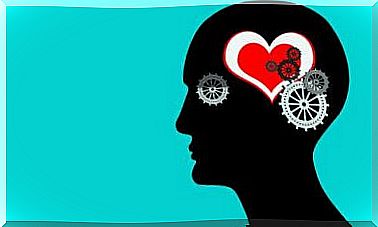Overtraining Makes You Impulsive So Be Careful

Did you know that overtraining makes you impulsive? That’s actually true, and today we’ll tell you why.
Exercise has many benefits for the body and mind. It improves your fitness, strengthens your muscles, tones your skin and is also good for your cardiovascular system and your cognitive abilities.
But you can suffer from many problems if you overtrain and do not rest properly between workouts. Exercise can, for example, become an addiction.
Other common conditions are muscle dysmorphy and an addiction to running.
Furthermore, it can lead to muscle damage, problems with the heart and lungs as well as a weakened immune system, damaged joints and overtraining syndrome.

Overtraining makes you impulsive
The training sometimes goes a little too far and turns into overtraining syndrome. The syndrome is reminiscent of when you are burnt out at work and the ability to perform in training deteriorates, even when the person is resting.
It manifests itself in the form of a number of physical and psychological symptoms. One can distinguish between physical and mental overtraining by looking at the symptoms:
Physical overtraining
The physical and physiological symptoms that may appear in this condition are:
- Increased blood pressure and increased heart rate
- High body temperature
- Hypertension
- Weight loss and loss of appetite
- Gastrointestinal diseases
- Muscle pain
- Risk of infections and a weakened immune system
- Increase in cortisol
- Increase in fatty acids
- A decrease in iron, hemoglobin and / or glycogen
- Mental overtraining
The following psychological symptoms may also occur:
- Mood swings
- Fatigue
- Anxiety
- Irritation
- Concentration difficulties
- Low self-esteem and low self-esteem
- Decreased libido
- Sleep disorders
A study has also shown that overtraining can lead to increased impulsivity. In fact, this not only affects this trait, but it can also have very negative consequences on both the person’s behavior and health.
Impulsivity is a trait that leads to quick action in unexpected ways when you are affected by internal or external stimuli. The person therefore acts without thinking or at least without thinking about the consequences.
The study that overtraining makes you impulsive
In September, a French research group published a study on the consequences of overtraining on people’s impulsivity. It was especially shown how overtraining affects cognitive control.
To do this, they recruited the 37 triathletes, which they divided into two groups: the overtraining group and the control group.
19 of them increased the duration of the training by 40% at each session for three weeks, while the remaining 19 people trained as usual during the same period.
After training for several weeks, an evaluation of the participants was performed. The researchers divided these sessions into the following ways:
- The athletes performed cognitive control tasks in connection with decision-making for 50 minutes. They also had to choose between two rewards: one direct or one long-term.
- A cycle session for 45 minutes at maximum speed to trigger the effects of overtraining. In other words, they were looking for signs of exhaustion.
- 50 minutes more when they performed the same cognitive tasks and made similar decisions as in the first block.
The researchers therefore observed the levels in the cerebral cortex, the performance of specific tasks and the preference for direct or long-term rewards.
What did you come up with?
The researchers were interested in the activity in the cerebral cortex that was related to impulsivity. Cognitive data were included to activate the said area in the brain.
When comparing the activity of the brain after 45 minutes of training with the activity during the first part of the session, a decrease in the activity of the lateral prefrontal cerebral cortex was discovered in decision-making, and not in the cognitive performance.
This means that overtraining has a negative effect on the person’s decision making and that it reduces the person’s psychological resources.
They also noticed that overtrained triathletes tended to prefer smaller rewards if given earlier, compared to the control group.

Exercise makes people more impulsive – health implications
These results are relevant in several ways:
- On the one hand, cognitive control and impulsivity enable people to perform tasks in a more focused and conscious way. In sports, poorer cognitive control leads to a higher sense of security, which exposes the body to great stress. If you do not take breaks to rest when necessary or if you appreciate more direct rewards, it can increase the risk of injury.
- The preference for immediate satisfaction is reminiscent of doping. It is an intoxicating feeling that worsens the body and can be devastating to the goals you have in the long run. It therefore has direct consequences for a person’s physical and psychological health.
As with most activities, an accumulated fatigue due to overtraining can have a negative impact, both in the short and long term.
It is therefore important that you have healthy habits and that you make appropriate decisions so that you do not expose the body to more than it can handle.








